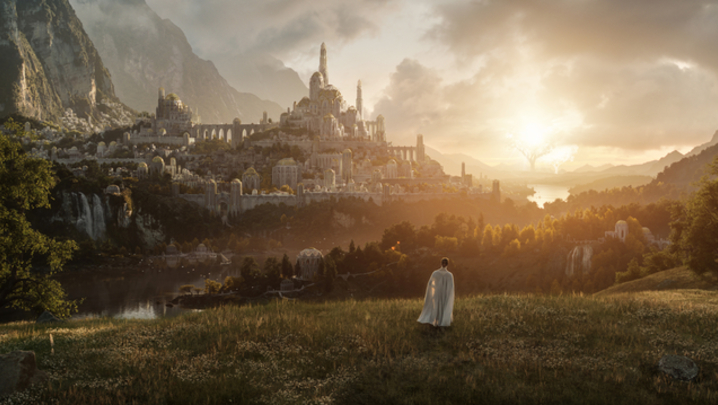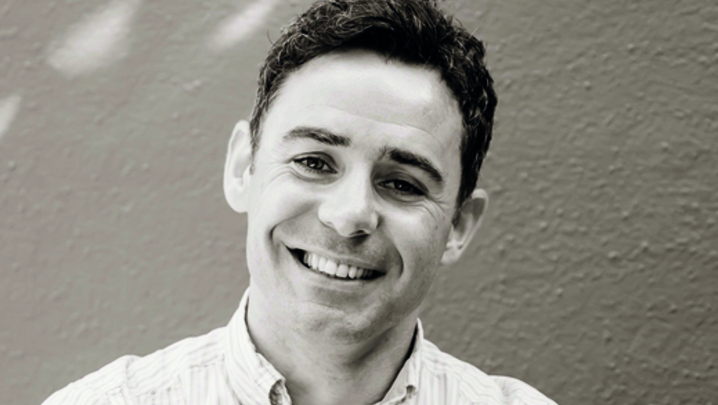Demand for high-end, English-language drama is transforming the UK’s studio business. Tim Dams investigates
Change is sweeping through the UK studios business. The transformation of this formerly predictable but competitive sector – dominated, traditionally, by a handful of studios such as Elstree and Pinewood – could have far-reaching effects.
One of the key drivers is the boom in television production, fuelled by tax credits for high-end drama and growing demand from broadcasters and streaming services for long-running series.
Huge new studios are being planned around the country. Scotland is set to get its first purpose-built studio complex, after proposals for six sound stages on the outskirts of Edinburgh were approved in April.
A major new studio is being readied in east London, on a 69,000m2 site in Dagenham, backed by the Mayor of London and Film London. And, later this year in Belfast, the £20m Belfast Harbour Studios will be completed. They will offer over 11,100m2 of studios, workshops and offices.
Existing studios are also enjoying significant expansion. Pinewood, which hosted Amazon’s The Collection, is in the process of doubling in size: it opened five new sound stages last July and applied for planning permission this April to build a further three.
Elstree, the base for mega-hits Strictly Come Dancing and The Crown, plans to build two more stages.
Leavesden intends to extend facilities at its 80,000m2 site by a quarter. The Space Project in Manchester, which hosted Cold Feet, is adding a huge, 2,800m2 studio to its three 930m2 stages. And Belfast’s Titanic Quarter, home to Game of Thrones, has invested £14m in developing two more studios.
As if all this was not enough, several old factories are being developed into studios. In Wales, an 18,600m2 studio complex is being developed on the site of a former television factory in Cardiff Bay. The initiative is a partnership between the Welsh Government and drama indie Bad Wolf, which intends to shoot its adaptation of Philip Pullman’s His Dark Materials there.
Screen Yorkshire recently converted a former RAF base into the Church Fenton studio facility, where the interiors of Buckingham Palace were recreated for ITV’s Victoria.
Even Hartlepool is getting in on the act, with the local council hoping to convert an industrial depot in the city into TV and film studios.
Much of this development is driven by the boom in television drama production. Thirty-six high-end drama series (defined as costing more than £1m per episode) saw their producers spend a total of £478m in the UK in 2016, according to the BFI.
This roster included the second series of The Crown, the seventh series of Game of Thrones, Fortitude, The White Princess and the third series of Outlander.
“Across our three studios in the UK, we are seeing sustained growth in film and high-end TV and, indeed, demand for light entertainment and shiny-floor shows as well,” says Andrew Smith, director of strategy and communications at Pinewood Group. “Demand for new content continues to grow.”
His company runs Pinewood, Shepperton and Pinewood Studio Wales, but Smith is concerned that the demand is stretching UK crews and talent. He fears that producers might look to shoot in other countries: “Our biggest threat is the skills shortage. We need to make sure that we are planning to fill those gaps rapidly.
“But not with some sort of grandiose strategy. This needs to be addressed immediately. If we haven’t got them in the UK, we need to train them up. If we haven’t got them in Europe, we need to bring them in from outside.”
Smith cites jobs such as set decorators, while Creative Skillset has identified shortages of production accountants, line producers and location managers.
He plays down any suggestion that the studio sector is experiencing a bubble that may one day burst – particularly if the drama boom abates. Production levels in 2017 and into the future look encouraging, he says. “There are high levels of demand for facilities, particularly bespoke sound stages – as opposed to what I call pop-up studios, such as converted warehouses.”
His view is echoed by Roger Morris, Managing Director of Elstree Studios, who also sees growing demand for English-language content.
“We are creating our own kind of ecosystem for film and television.”
Like many studio chiefs, Morris is cautious about investing large sums in big construction projects: “It is a very expensive thing to go and build stages from scratch.” One of the keys to running a successful studio business, he says, is “not putting all your eggs in one basket”. He adds: “We try not to have a business model that is too dependent on any one genre.”
As a full-service studio complex, with technical facilities provided in partnership with BBC Studioworks, Elstree can host shiny-floor shows alongside dramas and film. It is also home to the Big Brother house at one end of the lot, which is left in situ all year round.
“I like having long-term clients,” says Morris. As well as providing long-term revenues, such relationships mean that “you can gear up your facility to everything such clients need, as opposed to inflicting your facility on them.”
In addition, Elstree has 43 on-site tenants – ranging from set builders and editing facilities to production accountants – which contribute to a local production ecosystem.
The high demand for fully equipped studios is particularly strong in the London area, which has seen capacity squeezed in the recent past.
BBC Television Centre’s studios have been closed for refurbishment for several years, and will reopen in September with three studios. Others have closed altogether, notably Teddington and Fountain Studios (home to The X Factor). Both were sold to property developers. ITV will close its London Studios to indie shows in spring 2018, and then redevelop its South Bank site.
However, Morris insists that Elstree experienced high levels of demand long before these studios started closing. “We’ve been busy for the past five years,” he says.
Manchester is another hot spot, says Adrian Bleasdale, CEO of Space Studios Manchester, which has provided facilities for Cold Feet, The A Word and Dragons’ Den. Space Studios is investing £14m in a new 2,800m2 stage plus 3,700m2 of units for “supply-chain businesses”, such as lighting and camera hire companies.
All the units, he says, have already been booked, off plan: “We are creating our own kind of ecosystem for film and television.” Numerous commercials have been shot at Space Studios Manchester, and it has hosted virtual-reality and motion-capture shoots, too.
Salford’s Dock10 is near by, but that is a very different studio operation, geared more towards shiny-floor entertainment shows. Bleasdale says that Space Studios’ primary competition comes from warehouses on industrial estates. His sound stages, however, “are air-conditioned, and acoustically treated for reverberation and noise ingress. They are part of a purpose-built facility that has dressing rooms, make-up and costume areas and production office space.”
As with many studio bosses, further expansion is clearly on Bleasdale’s mind. The 2,800m2 sound stage currently under construction is the second phase of building at the studio, which opened in 2014.
In a comment that underlines the growth mindset of the UK studio sector, he says: “We’ve already got thoughts about phases three, four and five.”







